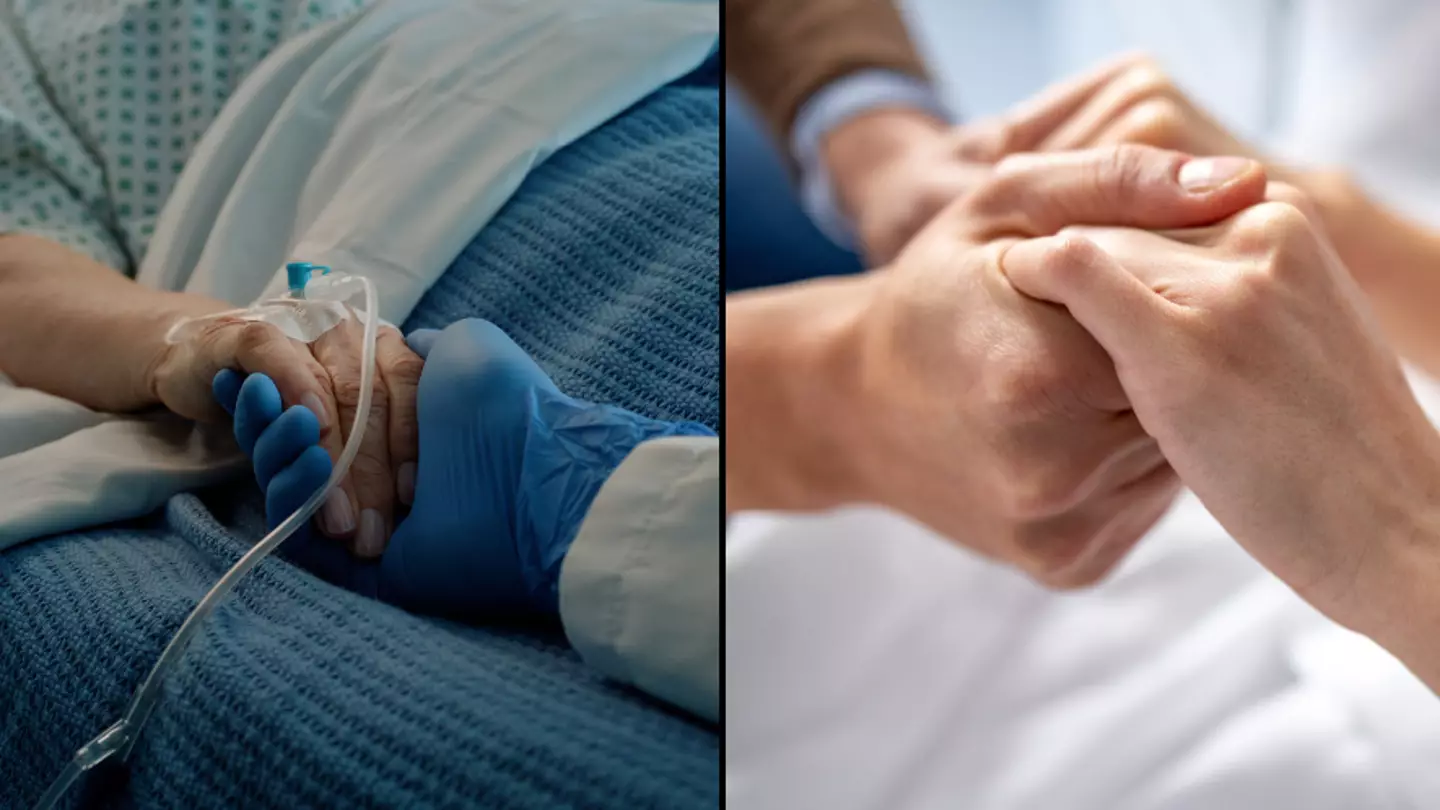
When people are in the process of dying, the senses tend to go in a particular order.
As the body nears the end of its lifespan something doctors call 'active dying' kicks in, and Dr. James Hallenbeck of Stanford University explained in his book 'Palliative Care Perspectives' how it all works.
You might have been told that hearing is the last sense to go and that is the case according to Dr. Hallenbeck - though he said that a person could also feel things around them as they passed away.
A study on hospice patients going through 'active dying' found that most unresponsive patients still had a response to being played different sounds, with some people still being able to hear things right up until their final moments.
Advert
While those may be the final senses to go, a common theme which usually marks the first step in 'active dying'.

And that is usually a loss of appetite.
The sense of taste may remain but a person's need to eat is diminished as the end of their life approaches.
The scientific reason for this is that as the body requires fewer nutrients to sustain it as it begins to shut down while dying, which means the appetite is just not there any longer.
Advert
A hospice nurse explained that the human body is designed to die, and thus when someone enters old age, their body will be ready for the process of death.
Once appetite has gone, speech is usually the next of the body's possible functions to stop working.
A person won't suddenly lose the ability to speak, but as they reach the end, they'll usually speak slower and conversations will become more difficult.

In the final stages before touch and hearing begin to fail, a person in the process of dying may find their vision affected.
Advert
This may explain why some people start to hallucinate and see loved ones who've already died in their final moments as their vision is going.
What sometimes follows then is something called 'the rally', where a person appears to get significantly better for a short period of time which may stoke some hope among their family and friends.
However, it's the body's last hurrah and hospice staff have learned to tell loved ones not to get their hopes up too much.
A palliative and intensive care nurse in Los Angeles said that about a third of patients who they administer palliative care to would experience 'the rally' in their final days.
Topics: Health